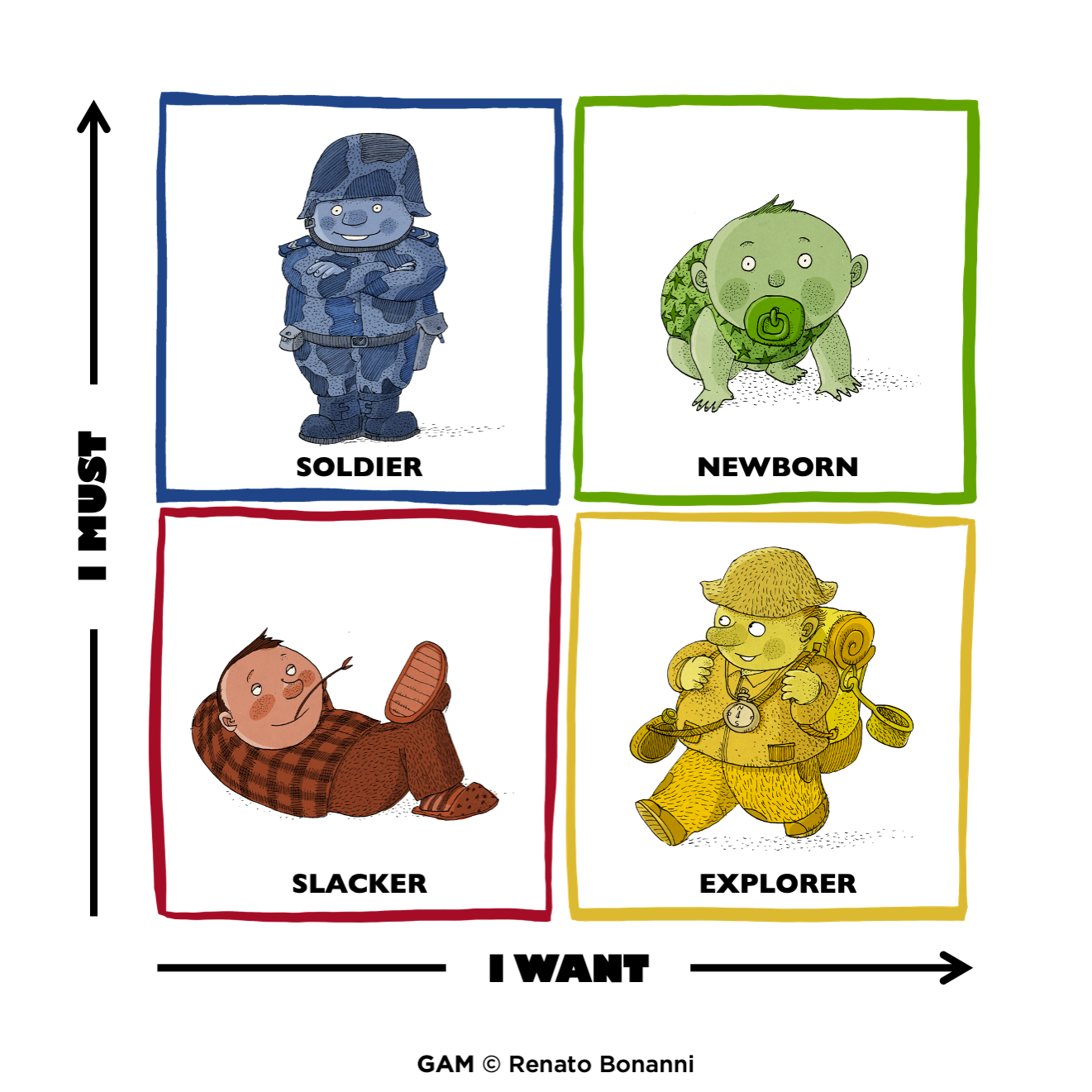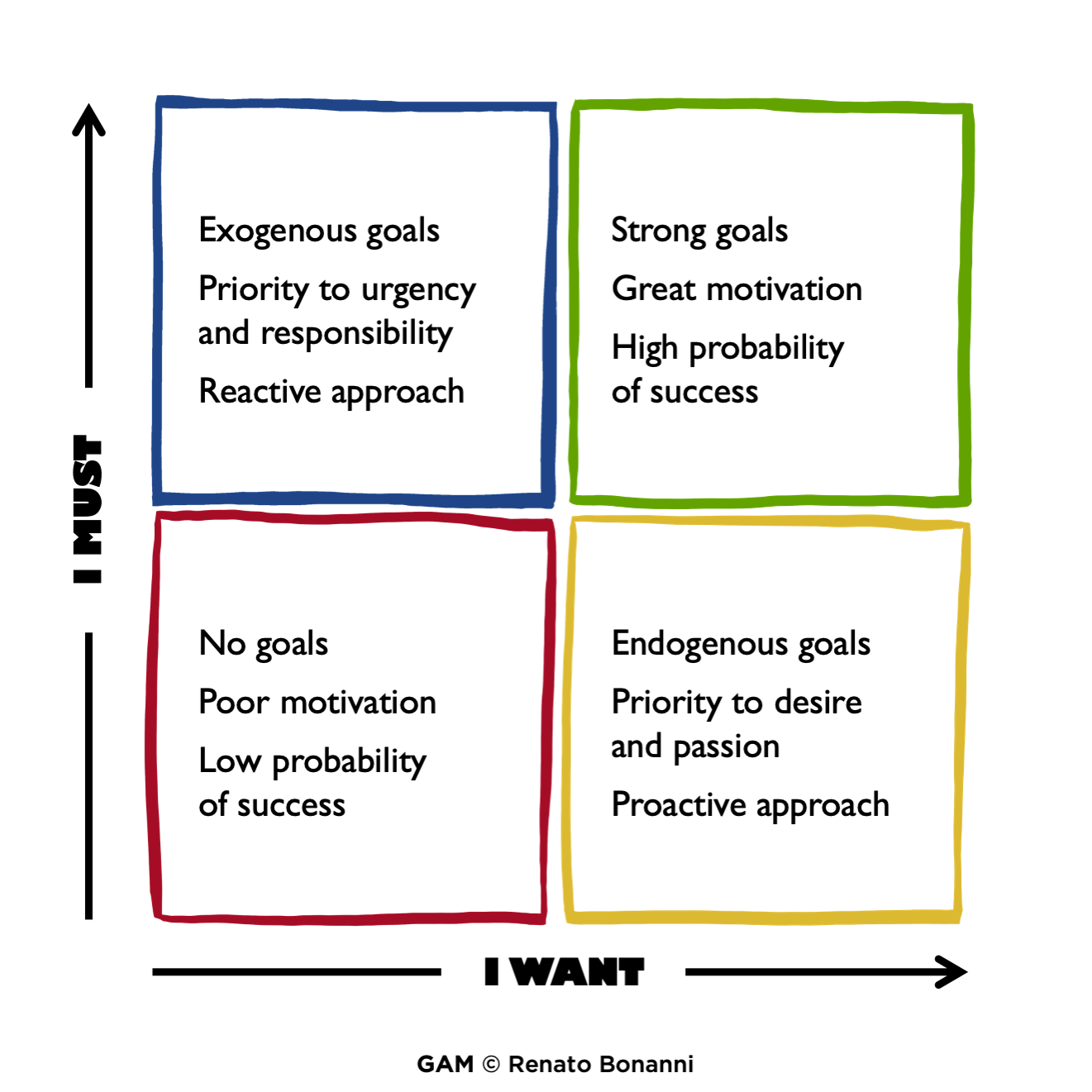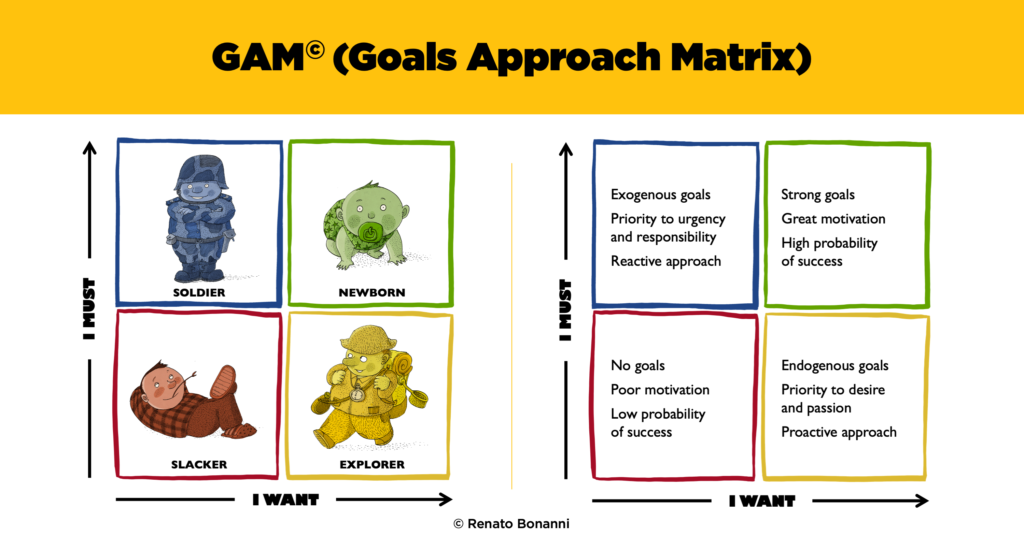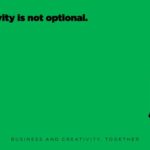In life we are used to carrying out a large amount of activities, some repetitive, others new. It is interesting to ask why we do it, what are the reasons that push us to act in a certain way, and it is extremely useful to understand what are the best conditions and approach to achieve our goals.
The motivations are basically two, the will a/o the duty, that means the desire a/o the need.
Let’s try to draw a Cartesian scheme in which we insert the will in the abscissas and the duty in the ordinates and divide it into four squares. I called this scheme the “Goals ApproachMatrix” (GAM©).

Each square identifies a different type of approach. The RED SQUARE represents the scarcity or lack of will and duty and corresponds in fact to the absence of motivation. This is the approach, or rather the attitude, of the COUCH POTATO.
The BLUE SQUARE indicates the approach that gives precedence to duty. Those who follow this path are driven to carry out their activities from the sense of duty, even in the absence of a precise will. In this area the motivational levers are therefore the responsibility, the need and sometimes the urgency to do something and the prevailing attitude is reactive. This is the approach of the SOLDIER, emblem of the sense of duty placed before his own will.
The YELLOW SQUARE is dedicated to the approach of those who act driven by the will, without being forced by external events; here the motivational lever is desire, passion, and the attitude will be mainly proactive. This is the approach of the EXPLORER who symbolizes the will to make new discoveries without having the duty or the need to do it.
Finally, the GREEN SQUARE defines the approach of those who carry out the activities they want and, at the same time, must do; in this case the attitudes and motivational levers are the sum of those relating to the BLUE and YELLOW SQUARES. This is the approach of the NEWBORN whose behavior is totally directed by desire and necessity.

Given that probably many of us in life have found ourselves at least once in one of the four squares, we can make general considerations.
First of all, we must not make the mistake of confusing duty with will. For example, those who have been used for many years to do their work out of a sense of duty, could exchange their ability to achieve results as a consequence of their own will, but this is not necessarily the case. In other words, the habit of always doing the same things, even doing them well, could make us forget our true desires and in the long run this attitude could be frustrating.
When we create a strong conflict between what we must do and what we want to do, most of the time this latter aspect will tend to prevail at the expense of the former. Consequently, we cannot too long hide our deepest desires (in life and work) or pretend that they are not there.
But the opposite is also true, if we act exclusively driven by passion without at the same time feeling the need to do what we do, over time there is the risk that the desire weakens and with it the motivation that drives us towards the goal.
On the other hand, all successful people have in common a very strong will, whatever the field in which they operate, and it is clear that this will is further strengthened by the sense of duty (in this regard, let us not forget the fundamental importance of determination and the propensity to improve one’s abilities as described in my MultiHolistic Model).
To fully realize ourselves we cannot therefore disregard what we want (in primis) and we must do, but it is not said that we can aim in that direction from the beginning; in fact it is possible that the cases of life advise us of (or force us to) undertake first a path that favors goals driven by duty and then, at a certain point, turn in the direction of what we really want (and must) do.
Taking for granted that the COUCH POTATO is not a good example to achieve any result, for some of us the SOLDIER could be more indicated, while others could prefer the EXPLORER, depending on the context and our attitudes, and it will therefore be possible to do a good managerial career as a soldier or an interesting entrepreneurship experience as an explorer.
But sooner or later, whatever the starting point, we will have to re-learn to assume the attitude of when we were babies to reach our most important goals with the urgency and enthusiasm of the NEWBORN!




